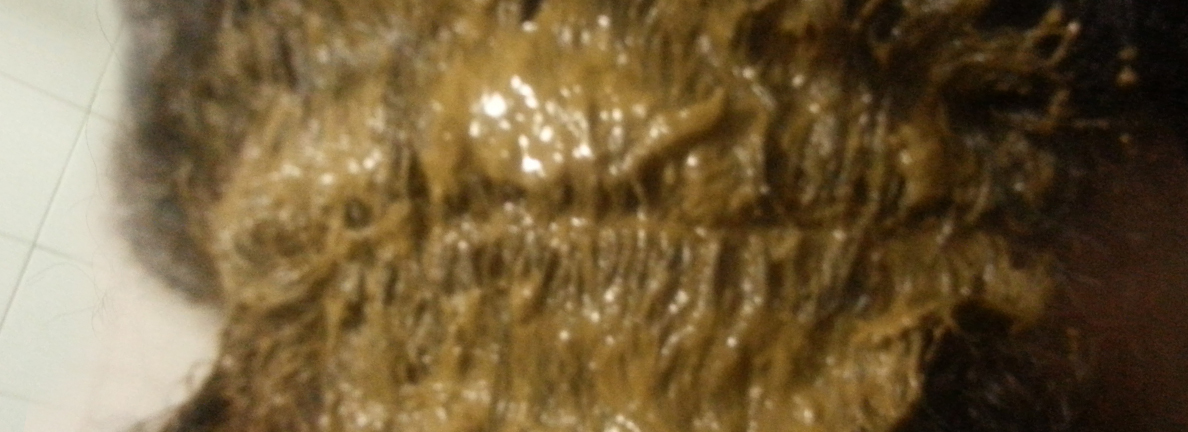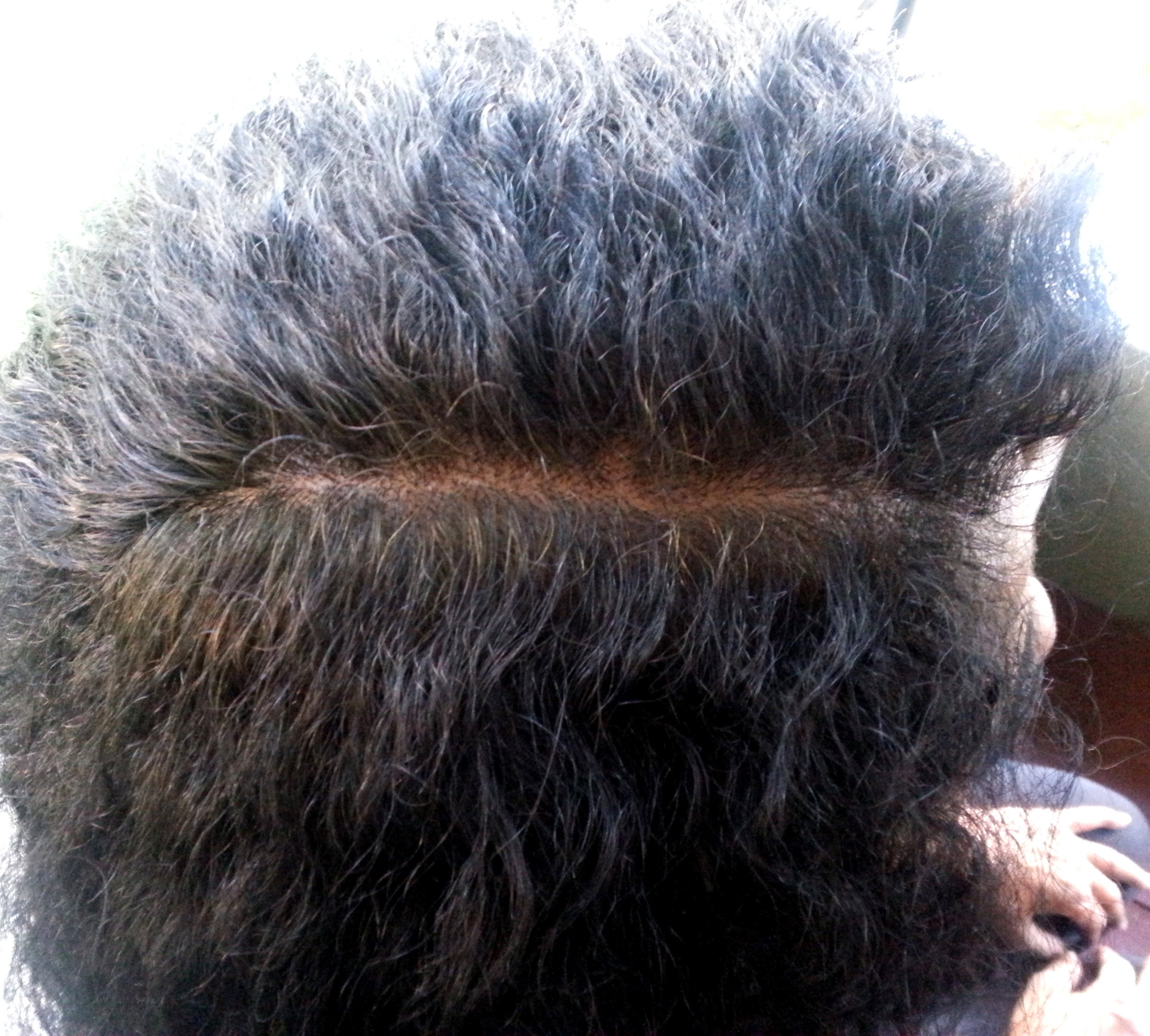Color Grays in Dark Hair with Henna & Indigo
Allison’s Black: Cover grays using henna and indigo in 2 steps
Gray and white roots
Coloring grays in dark hair is a two-step process (there's no shortcut - believe me, I've tried!). Here's the recipe and process I've used to cover grays in my own dark brown (nearly black) hair - which is now about 70 percent gray.
A note about the ingredients: I use pure, organic, BAQ (body art quality) henna and organic herbs from reputable sources, and I strongly recommend you do the same. (I'll have a listed of sources posted in my blog VERY soon.) I also use distilled water and heat it on the stove - rather than the microwave - because I'm picky and have achieved better results.
Two-Step Process Overview:
Step 1: Apply the henna mixture to hair and leave in for a few hours, then rinse and shampoo
Step 2: Apply the indigo mixture to hair and leave in for a few hours, then rinse and wash with conditioner.
Supplies:
Hairline protector
Ceramic or glass bowl
Wooden spoon
Rubber gloves
Hair clips - plastic
old towels or newspaper
Optional applicator brush
Henna Mix:
100 grams (1 package) henna powder (organic, BAQ)
1 tbsp amla powder
1 tbsp hibiscus powder
4-5 cups warm water (or herbal tea such as green tea, or hibiscus or roobios)
Indigo Mix:
100 grams indigo powder
1 tsp sea salt (optional)
2 tbsp aloe vera (cold-pressed or powder)
3-5 cups very warm water
Mix the Henna
Empty henna into a glass or ceramic bowl
Add warm (not hot) water or herbal tea (3-4 tea bags) in small amounts. Gradually mix to thickness and consistency of mashed potatoes.
Cover with plastic wrap and let it sit as instructed on the package - usually 2 to 6 hours - at room temperature to release the dye.
When time's up, add more tea, and mix to yogurt consistency.
At this point, you can add the other herbal powders, which in this recipe are amla and hibiscus.
henna looks greenish when applied to hair
Apply Henna to Hair
Separate hair into 4 sections withclips and apply hairline protector to your hairline, ears and nape of you neck
Apply the henna mix THICKLY - but gently - with your hands or an applicator brush. Really work it into your hair.
Wrap your hair with plastic wrap and a plastic cap to keep in moisture and heat. Leave in for the length of time shown on the instructions - usually 2 to 4 hours.
Thoroughly rinse hair with lukewarm or slightly warm water. I fill a large tub with water and dunk my head in - and that's before I really start rinsing. I've often used conditioner to help me remove the henna. When it's all rinsed out, I shampoo and rinse again.
After rinsing the henna, gray and white hairs are turned orangish-red by the henna. Black and dark brown hair looks the same.
Mix the Indigo
In a glass or ceramic bowl, add dry indigo powder, salt, and warm water. Mix thoroughly and let sit for 5-10 minutes.
Apply the indigo to your hair
Add the aloe vera to your mix just before your ready to apply the indigo. Also, keep warm water on hand in case the indigo starts to dry out.
Apply the indigo to your hair thickly and quickly.
Wrap with plastic wrap and plastic cap to keep in moisture and heat. Leave in for the length of time shown on the instructions - usually 3 to 4 hours.
Thoroughly rinse with warm or lukewarm water. Again, I fill a tub and dunk my head in, swishing it around. You can use a moisturizing conditioner to help remove the indigo, but don't use shampoo at this point.
After rinsing, I strongly recommend applying argan or marula oil to damp hair immediately, because indigo can be a bit drying for some. (I read about this technique on CurlyNikki's blog and it has all but solved my dry hair issues.) Keep the oil on 10 minutes, then apply a moisturizing conditioner OVER the oil. Rinse again, as you normally would.
Do not shampoo your hair again for 24-48 hours to allow the color to oxidize.
After Indigo treatment





